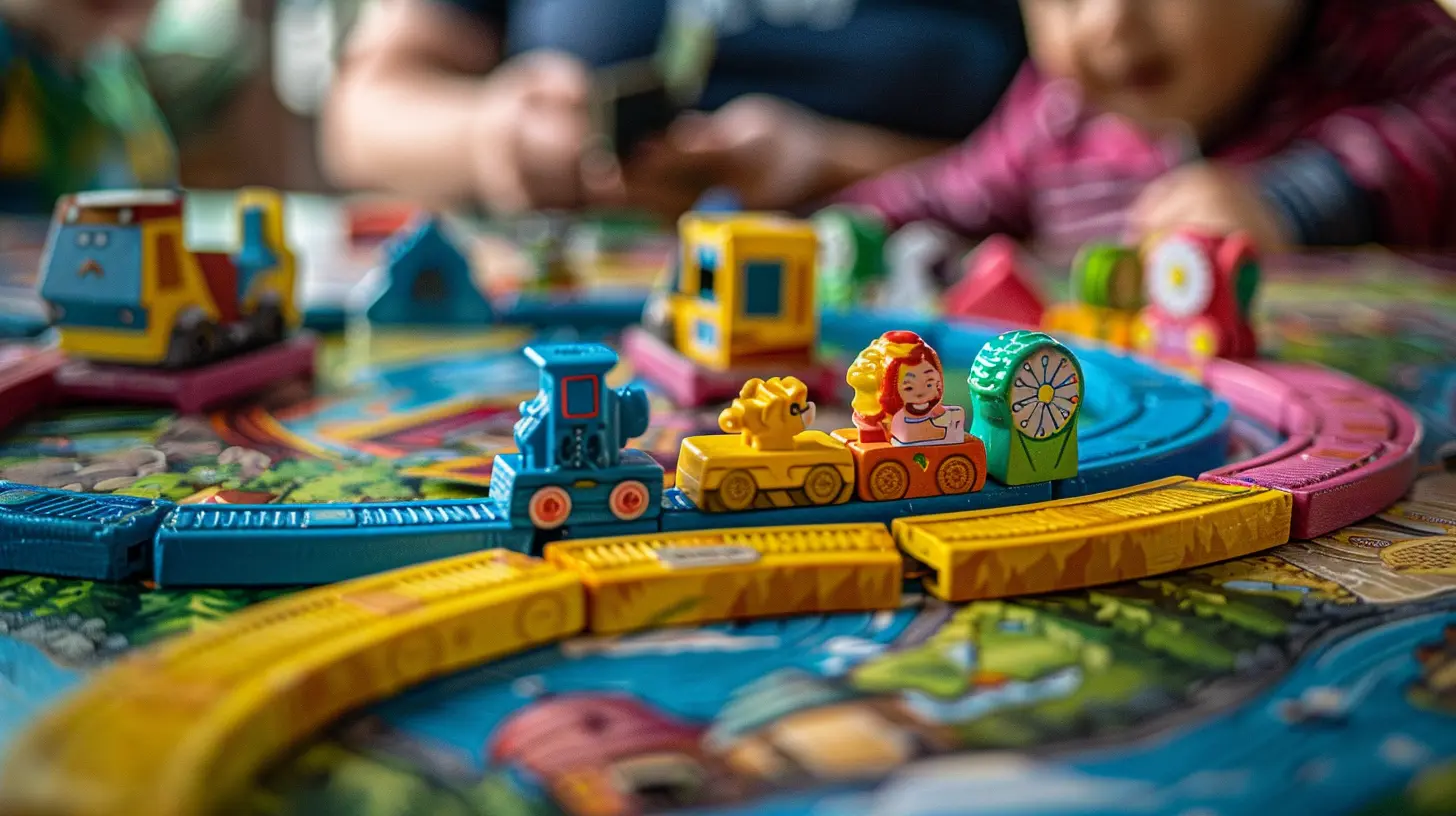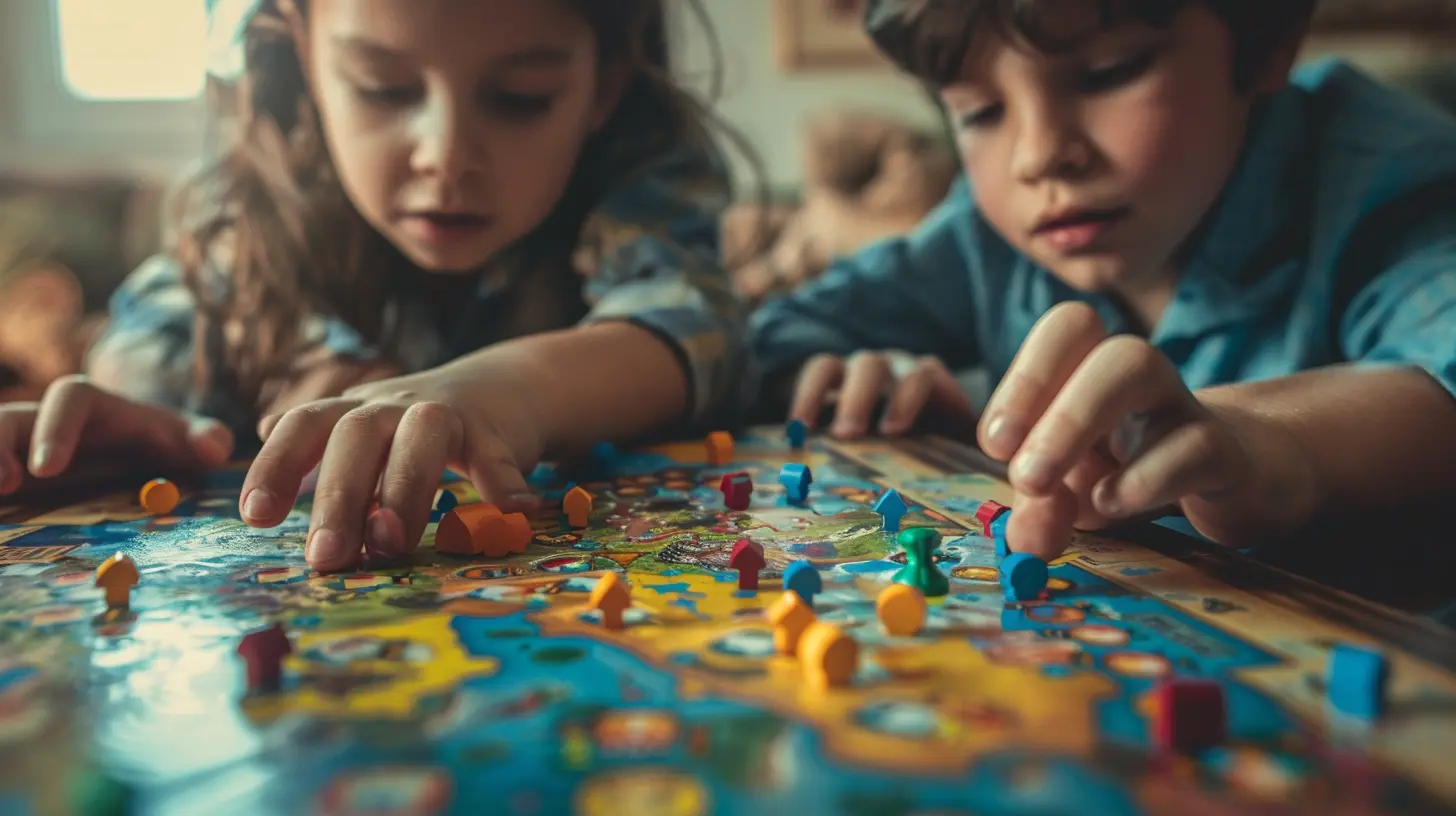How Cooperative Games Encourage Empathy and Understanding
9 August 2025
Let’s be real for a second—when most people think about games, they picture fast-paced action, headshots, and that sweet “Victory Royale” screen. But not all games are about competition. In fact, there's a whole world of cooperative games out there that flip the script. Instead of facing off against each other, players team up to achieve a common goal. Sounds chill, right?
But here’s the kicker—cooperative games do more than just entertain. They actually help us become better people. Yeah, you read that right. These games are little empathy machines, quietly teaching us how to communicate, understand, and connect with others. So grab your favorite co-op title and let’s dive deep into how cooperative games encourage empathy and understanding.

What Are Cooperative Games Anyway?
Before we dive into the warm, fuzzy feels, let’s define what we’re talking about.Cooperative games—often called "co-op" games—are titles where players work together rather than compete against each other. Whether it's two best friends solving puzzles or a team of five planning a mission, success hinges on collaboration.
Some classic examples? Think It Takes Two, Overcooked, Portal 2, Left 4 Dead, Lovers in a Dangerous Spacetime, and Keep Talking and Nobody Explodes. These games don’t care if you’re top of the leaderboard—they care if you can solve problems with your crew.

The Emotional Side of Gaming
Now, let’s pause for a second. Sure, competitive games can spark intense moments and hype-fueled celebrations, but cooperative games tap into something softer and more enduring: shared experiences. They connect people on an emotional level—and that’s where empathy comes in.Let’s break it down:
Empathy Defined (In Plain English)
Empathy is when you “get” what someone else is feeling. It’s like putting on someone else’s sneakers and walking a mile in them. Understanding, on the other hand, is being able to see things from another person’s perspective—even if it’s different from your own. Together, these traits help us become more compassionate and thoughtful humans.And guess what? Co-op games are excellent at subtly teaching both.

1. Teamwork Teaches You to Listen
Every good co-op game is built on clear communication. You can’t beat a level in Overcooked by shouting nonsense. You’ve gotta talk (and listen). Who’s chopping onions? Who’s plating the burgers? Who’s on dish duty?You learn this fast: if you ignore your teammates, chaos follows. Whether it’s verbal commands in a voice chat or non-verbal cues in local play, your success hinges on paying attention. Listening to others means you’re absorbing their goals, struggles, and plans—which is literally empathy in action.
Real-Life Parallel?
Think about being on a team at work or school. Cooperation requires listening, adjusting, and sometimes backing off your own idea for the group’s sake. Sounds a lot like what happens in co-op games, huh?
2. Shared Struggles Build Bonds
Let’s face it—there’s nothing quite like the chaotic stress of trying to escape a haunted hospital in Phasmaphobia or solving a puzzle in Portal 2 while avoiding turrets. These shared challenges create memorable experiences that bond players.When you work together to overcome obstacles, you start to see more than just another avatar. You see the person behind the screen. You recognize their quirks, strengths, and how they react under pressure. You learn to appreciate them, even if they’re super annoying at times.
Think About It...
Ever notice how a tough co-op level can turn a stranger into a fast friend? That moment when you both finally complete a mission after dozens of tries? Pure magic.3. Role Assignment Encourages Perspective Taking
In a good co-op game, each player has a role to play. Maybe one player is the medic, another is the tank, one’s controlling the ship’s shields while another steers it (Lovers in a Dangerous Spacetime, anyone?). This division of responsibility means you need to understand and respect your teammates' roles.You can’t succeed if you don’t grasp what others are doing—and that’s a lesson in understanding. You start asking questions like: “What does my teammate need right now?” and “How can I support their mission too?”
The Empathy Pays Off
Now, imagine carrying that same mindset into real-life situations. Being able to step into someone else’s shoes enough to support them? That’s a superpower rooted in empathy.
4. Co-op Games Reduce Toxic Behavior
Let’s talk about the elephant in the room: online toxicity.Competitive games often get heated. Trash talk, rage-quits, trolling—it’s like a sports arena with no adult supervision. But when you’re working together instead of against each other, the vibe shifts big time.
In co-op environments, you’re more likely to encourage than trash talk. The shared objective builds camaraderie instead of rivalry. You’re less focused on “being the best” and more focused on “doing our best.”
And when people get along? That’s when empathy blossoms. Kindness becomes the norm instead of the exception.
5. They’re Accessible for All Ages
Another win for co-op games? They’re easier to introduce to younger players or people new to gaming. You’re not pitted against others; you’re learning together. That cooperative setting can build social and emotional skills in kids, like patience, turn-taking, and communication.For adults, it’s a chance to break from the usual grind and reconnect with friends or partners. Many couples actually use co-op games as a form of relationship bonding. (Pro tip: Just don’t play Overcooked on date night unless you're emotionally ready.)
6. Problem Solving Together Strengthens Empathy
Many co-op games throw puzzles and challenges your way. Unlike single-player games, though, you have to negotiate and compromise to solve them. You’ve got to blend your brainpower.If one person’s struggling, it’s up to the team to figure out a way through. That creates space for patience, encouragement, and perspective-taking—all hallmarks of empathy.
Quick Story Time
A friend and I spent hours playing We Were Here, a two-player puzzle game where you’re in separate rooms and can only communicate via walkie-talkie. We had to describe everything we saw, even when it made no sense. It taught us how differently we think and how valuable good communication is. We didn’t just beat the game—we leveled up our friendship.7. Diversity Shines in Co-op Play
Every player brings a different background, play style, and way of thinking to the game. When you’re playing cooperatively, you don’t just tolerate those differences—you rely on them.That’s right. The quiet strategist, the loud motivator, the focused puzzle-solver—they ALL add value. You start to see the beauty in diversity. And what’s empathy, if not appreciating different perspectives?
8. Virtual Worlds, Real Impact
The beauty of cooperative games is that they create a safe sandbox where people can work through emotions, navigate social dynamics, and practice kindness—all while having fun.Here’s a wild thought: If video games can shape habits and behavior (and they absolutely can), then what we practice in these virtual worlds doesn't just disappear once we turn off the console. It sticks with us.
So the calm, compassionate mindset you used to help a buddy in Keep Talking and Nobody Explodes? That transfers into real-world patience when your sibling’s explaining something you already know.
Cooperative Games as Classroom and Therapy Tools
Did you know that educators and therapists are already tapping into co-op games to foster social-emotional learning?Games like Minecraft: Education Edition or Animal Crossing have been used in classrooms to promote collaboration, kindness, and inclusiveness. Meanwhile, therapists have used games like Unravel Two to help clients build trust and communication skills.
Why? Because these games create low-risk environments where people can safely practice emotional regulation and understanding others.
Final Thoughts: A New Way to Level Up
So next time someone tells you gaming is a waste of time, hit 'em with this truth bomb: co-op games are empathy training in disguise. They teach us to listen, understand, encourage, and bond—all under the guise of having a good time.In a world that often feels divided, cooperative games remind us that working together feels way better than going solo. Sure, competition is thrilling, but creating something together? That’s unforgettable.
So grab a friend, queue up a co-op adventure, and get ready to connect—not just with the game, but with each other.
all images in this post were generated using AI tools
Category:
Cooperative GamesAuthor:

Tina Fisher
Discussion
rate this article
1 comments
Lennox Horne
Cooperative games are more than just fun; they foster empathy and understanding, teaching us the value of teamwork and connection. Let's embrace these experiences to build stronger bonds and a more compassionate gaming community!
August 16, 2025 at 4:18 AM

Tina Fisher
Thank you for highlighting the importance of cooperative games! They truly do cultivate empathy and strengthen connections among players, making our gaming experiences more meaningful and enriching.


